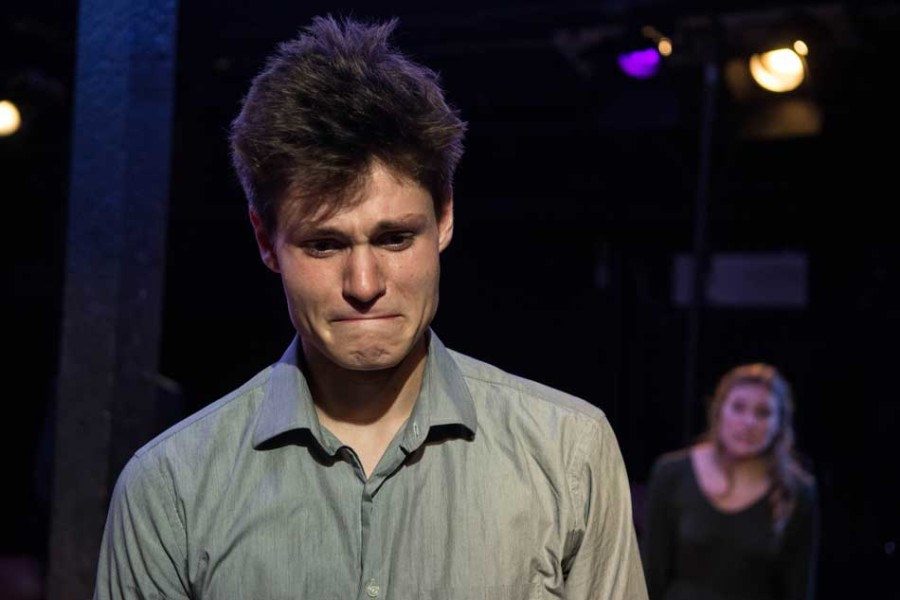Jewish Theater Ensemble tackles sexual identity in fall production
Leeks Lim/The Daily Northwestern
Reed Lancaster plays the role of John in Jewish Theatre Ensemble’s fall production, “Cock.” The show opens on Oct. 15 at the Shanley Pavilion.
October 14, 2015
The spectrum of sexuality takes center stage in the Jewish Theater Ensemble’s new fall production, “Cock,” running this weekend in Shanley Pavilion.
The show, by playwright Mike Bartlett, follows the main character, John, as he struggles to reconcile his feelings for his new female lover with his love for his long-term boyfriend. The issue of sexual identity was part of what attracted Communication junior Joan Sergay to direct the show.
“The show is inherently political, without making a huge political statement,” Sergay said. “It’s about sexuality and what it means to label your own sexuality and what it means for others to label your sexuality.”
Communication senior Drew Guerra, who plays the father of John’s boyfriend, says “Cock” is different than other shows centered around social issues.
“A lot of shows deal with the trials and tribulations of being gay,” Guerra said. “But having it where someone does legitimately fall in between just gay and straight on that scale and they are represented as a real person is really terrific.”
The depiction of sexuality as a spectrum is not the only thing that makes “Cock” a unique show. Cordelia Dewdney, a Communication senior who plays the main character’s girlfriend, says Bartlett’s decision to omit traditional stage directions from the script presented an interesting challenge.
“It’s a bit different with the blocking, because there’s this balance between literal and metaphorical, because it’s in the round and it’s so intimate,” Dewdney said. “It’s like an obstacle course — it’s fun and you get through it.”
While the eccentricities of “Cock” attracted the cast and crew, they proved a challenge for Communication sophomore Nicole Bauke. As producer, Bauke was in charge of shepherding the production to completion, which included raising money from local businesses.
“It was definitely awkward, like talking to storeowners in Evanston and convincing them that a show called ‘Cock’ was actually a legitimate production with a positive message,” Bauke said.
The show’s provocative title proved awkward for cast members who wanted to tell their family about the show.
“We’ve jokingly been calling it ‘Rooster’ around our grandparents, so every time I’m with my grandmother, I’m like, ‘You’re coming to ‘Rooster,’ right?’” Guerra said.
Despite the unique style and the difficult topics, Sergay said she believes the show still has broad appeal.
“The show has something to say to everyone,” Sergay said. “It really touches on what it means to love and what it means to fight for the people we love. It’s about how our relationships define our identity — who we are and also who we want to be.”
This article was updated at 3:56 p.m. Oct. 18 to clarify Bauke’s responsibilities as producer.
Email: [email protected]


